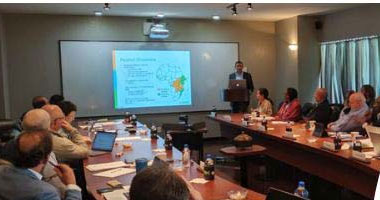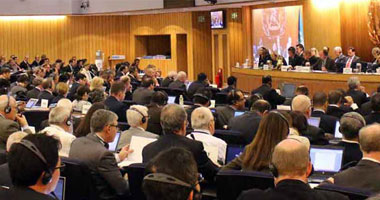6 Cyber Security Tips for Staying Secure While Traveling
Nearly all of us will have to travel sometime during our work. While we’ll have a lot on our minds, from making sure to pack everything (don’t forget the toothpaste!) to having our presentation materials ready, it’s also important to keep a cyber-security mindset when traveling out of the safe environment of your office. Let’s review some best practices to keep in mind while traveling.
1. Cover Your Screen
Catching up on email or working on presentations while travelling is a great way to stay productive. However, it’s important to keep prying eyes away from your screen. Using a privacy screen guard will restrict the field of view of your screen to someone sitting directly in front of your screen. That should mean only you can view your screen when you’re at the keyboard (unless you have people sitting in your lap, which is an article for another time!).
2. Get on a Good Network
A great way to get Internet access while traveling is to connect to a hotspot that you own, such as through your phone or through a dedicated hotspot device. Make sure that access is protected by a secure password to give you a safe means of getting online and to keep unwanted hotspot trespassers off.
Whether you are on your own hotspot or using a publicly available one, such as at an airport or coffee shop, you should always use a VPN (virtual private network) provided by your employer. A VPN encrypts network traffic to and from your computer and sends all your network traffic through your employer’s network. This lets you stay protected by the same information security protections that you’d get when accessing the Internet at work. This is not just good for cyber security; it’s often the only way you can access resources on your work network such as shared drives and intranets.
Hackers and malware can get onto your devices through direct connections you make through USB connections. Don’t plug in any drives or media that you find or get from questionable sources. And don’t plug your devices into systems that aren’t yours, such as connecting your phone via USB into someone else’s computer to charge.
3. Save the Trees
When traveling, it’s best to avoid bringing printed reading material with you, especially if it’s sensitive information. Bringing reading material in electronic form helps you travel light. Carrying paper materials also creates a risk of dropping something, which might expose sensitive content to the public.
Depending on the types of materials you’re reading, that exposure might cause a major cyber-security event at your company. Keeping everything electronic on your laptop lets you use the security of your computer to protect it. At many companies, the laptop you have has many layers of security on it, including your password, hard drive encryption, and remote cyber-security policies that can lock and wipe lost devices. Those protections don’t exist for printed materials. Plus, reducing your paper usage is cost effective and good for the environment.
4. Shhh! Don’t Be “That Guy” on the Phone
There’s nothing wrong with taking a phone call in public, but it is important to keep in mind that you are in public. Avoid using client or partner names; a competitor may be listening, and your clients and partners may not want you to share information about their relationship with you. I’d also recommend not talking about anything overly dramatic, such as anything dramatic about an individual. These topics attract eavesdroppers. The fewer eavesdroppers you have on a work call, the better.
5. Avoid Using Personal Social Media on Work Computers
If you are able to access your personal social media on a work account, you might want to reconsider if it’s something you really want to do. The risk of accidentally cutting-and-pasting something from your work into your social media stream, or vice-versa, is fairly high. The consequences at best would be embarrassing and at worst could be catastrophic to your business or career. If you’re allowed to use a personal cell phone at work, it’s best to use that for your personal accounts. This way, there’s no risk of accidentally “contaminating” one environment with information from the other.
6. Know What You’re Plugging In
Hackers and malware can get onto your devices through direct connections you make through USB connections. Don’t plug in any drives or media that you find or get from questionable sources. And don’t plug your devices into systems that aren’t yours, such as connecting your phone via USB into someone else’s computer to charge. These scenarios expose your device or media to malware and other potential problems. Instead, use only your own media and charge by plugging directly into an electric outlet or to your own device. If you must travel with a USB drive, which can be dropped and lost, it’s best to use an encrypted USB drive that can only be decrypted with a password. That helps protect you in case you drop or lose it.
And to make travel easier, I also suggest having your own portable USB charging battery. These are great when traveling, especially when you’re delayed unexpectedly and only have a few bars of power left on your phone. The extra charge makes these delays much more bearable, as well as safer.
Safe Travels
We’ve also spent a lot of time thinking about the likely 5G future, and we can see some different scenarios emerging.The most important thing to keep safe is you. But once you have that under control, look to secure the devices and data that you might be carrying. Following the tips above will make that easier, and many of them will become second nature after trying them once or twice.
Subscribe to Industry Era
News
Meta brings AI, video calls, and new styles to its Ray-Ban smart glasses
Rabbit R1 pickup party recap — new features, demos, unboxing and more
Steve Jobs was wrong about the post-PC era and the next batch of iPads should embrace this
Tim Cook hints at new Apple Pencil 3 coming next month – here’s what the rumors say
Apple reportedly cuts Vision Pro production due to low demand
FTC bans noncompete agreements, making it easier for workers to quit. Here's what to know.
S&P 500 futures rise after earnings lift the index to a second winning day: Live updates
Oracle is moving its world headquarters to Nashville to be closer to health-care industry
Oracle chairman Larry Ellison tags Nashville as company's world HQ
Express in Warwick Mall to close as retailer files for bankruptcy
Opinion: Elon Musk gives Wall Street what it wants, but more pain could be around the corner
Dom's Kitchen and Foxtrot abruptly shutter stores, months after specialty grocers merged
Popular restaurant chain filing for bankruptcy, closing all locations










